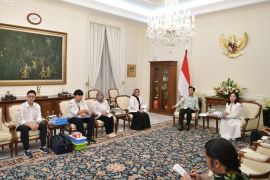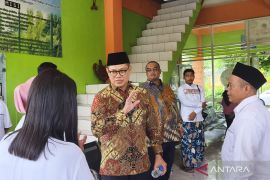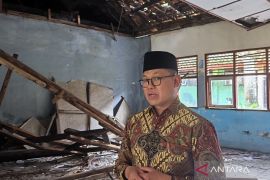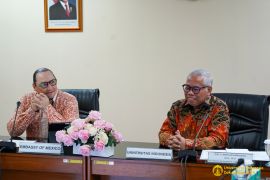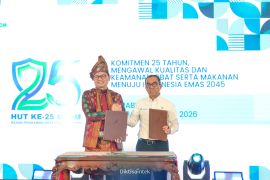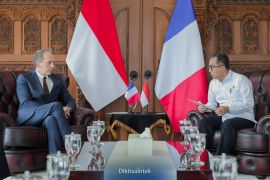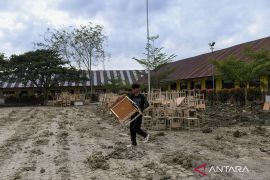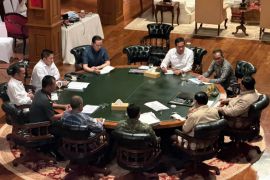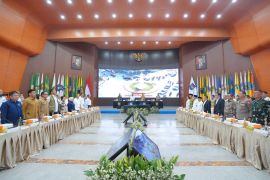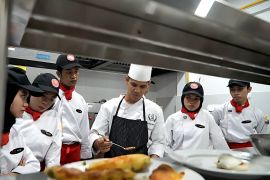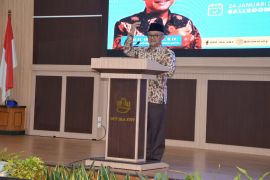While the establishment of the Work Committee for Education in 3T and Marginal Areas of Commission X of the House of Representatives (DPR) has given cause for hope, its report has highlighted some hard realities regarding the education ecosystem in 3T areas.
As per the report, the areas lack adequate educational facilities, and educational attainment among their residents is also limited.
Some of the inputs in the report have come from the Indonesian Education Monitoring Network (JPPI).
Sharing his findings from the field, for instance, the remote areas of Kalimantan and Papua, the JPPI's national coordinator, Ubaid Matraji, said that many schools in these areas do not have permanent teachers, adequate textbooks, or Internet access to support digital learning.
"How can we talk about Independent Learning if students have to write with charcoal on a board because they do not have books?" he asked.
According to the JPPI, in 2024, almost 50 percent of children in the 3T areas had only completed education up to the elementary school level. The organization listed a number of factors behind students dropping out of school in the 3T areas.
They include inadequate number of schools and poor quality of schools; long distance and difficult access to schools; weak financial condition of families, who cannot afford education; the practices of child marriage and child labor; and lack of awareness about the importance of schooling.
Matraji said that in the 3T areas, schools located near residential areas are often limited to the elementary school level.
If children wish to join a junior or senior high school, they have to travel long distances.
These problems have led some residents to believe that working to build their family's economic resilience is more important than schooling. They are not yet convinced that going to school can improve their economic conditions.
They also tend to be dismissive of education, with many believing that even after completing schooling, their employment options would be limited to farming, fishing, or working in the forest.
Given these challenges, the JPPI is encouraging the government to provide a special education budget for the 3T areas, including educational logistics support, such as printed modules, simple learning equipment, and training programs for local teachers.
In addition to the JPPI, Statistics Indonesia (BPS) has also highlighted the education issues in the 3T areas.
Speaking to the Work Committee for Education in 3T and Marginal Areas, BPS head Amalia Adininggar Widyasanti said that the number of schools with damaged buildings in Indonesia is still quite high, especially at the elementary and junior high school levels.
According to Widyasanti, of the total 20,573 schools (early childhood education facilities to senior high schools) in the 3T areas, the buildings of as many as 10,294 are damaged.
She said that supporting facilities for teaching and learning activities, such as libraries and laboratories, are still lacking. In fact, she added, more than 5,783 schools do not have electricity, while as many as 10,692 schools do not have access to the Internet.
In response to this, Commission X of the House of Representatives, through the education working committee, reaffirmed its commitment to creating an affirmative policy road map.
Chair of Commission X, Hetifah Sjaifudian, emphasized that pursuing equality in education is not merely about constructing school buildings, but also building a complete education ecosystem—from teachers, facilities, to technology.
The commission also underscored the importance of synergy between ministries, such as the Ministry of Primary and Secondary Education, Ministry of Higher Education, Science, and Technology, Ministry of Villages and Development of Disadvantaged Regions, and Ministry of Communication and Digital Affairs to digitalize education in underdeveloped areas.
The commission, which is tasked with education affairs, stressed that unequal access to the Internet and technology must be tackled immediately to prevent unfairness in education from worsening in the digital era.
It has, therefore, begun discussing concrete steps to address this, including encouraging "mobile schools," or schools that are brought closer to isolated areas, and providing support to local teachers through incentives and affirmative scholarship programs.
Deputy chair of Commission X of the DPR, Himmatul Aliyah, has proposed an affirmative fiscal policy for regional leaders who succeed in improving education in the 3T areas.
Realizing equality in the education sector for the 3T areas requires patience, persistence, and long-term commitment from all parties, including the community.
If not addressed with haste, it is feared that education inequality will eventually put the future of Indonesia's younger generations at risk.
Related news: Papua makes cross-sector push for equal education in 3T areas
Related news: Deputy MPR Speaker calls for equal access to education
Translator: Tri Meilani, Raka Adji
Editor: Azis Kurmala
Copyright © ANTARA 2025

